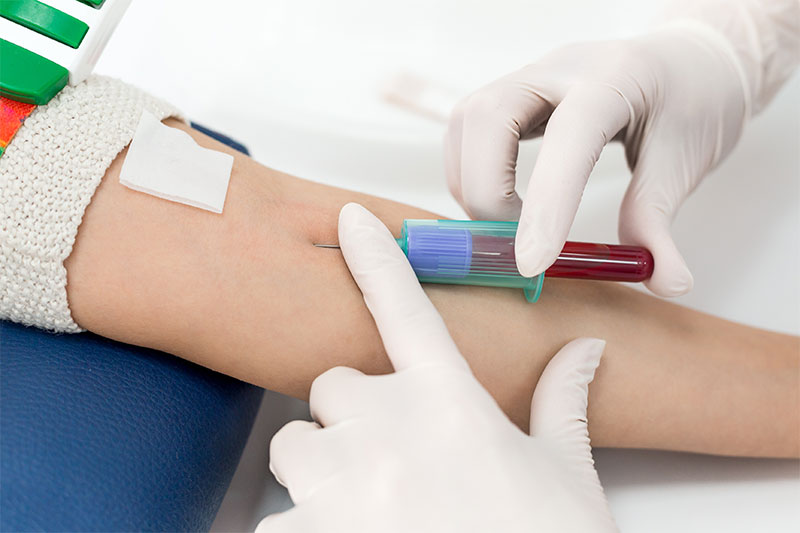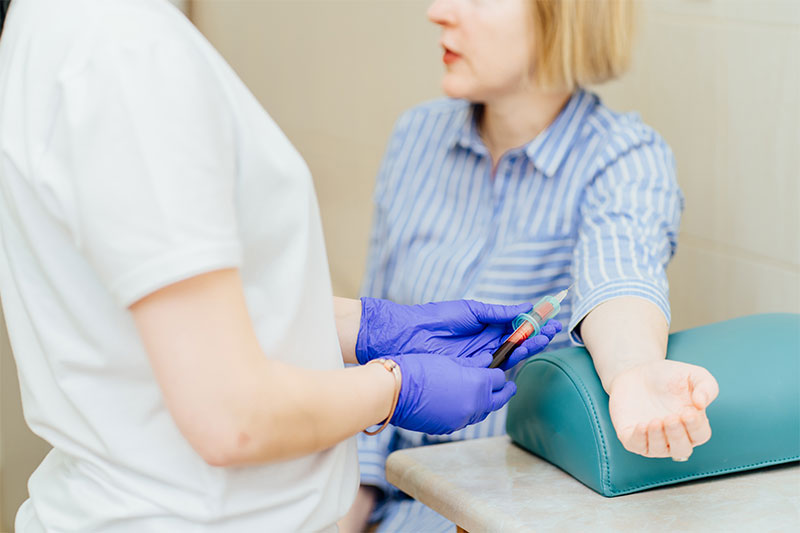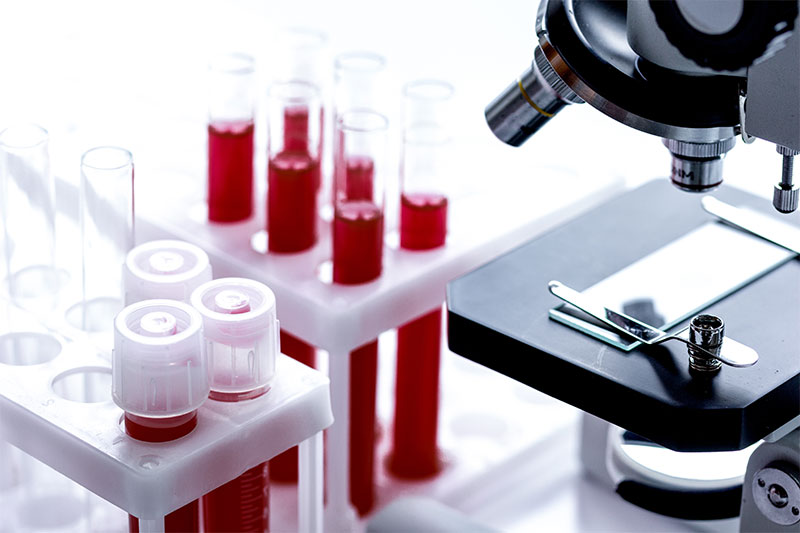
Before undergoing blood tests, individuals should not eat or drink anything other than water. What blood tests require fasting, and how can people fast? Fasting is only required for a short time before a blood test.
Even so, it can seem daunting to go without eating or drinking, even for a short period. Fasting before a blood test can reduce unnecessary anxiety. This article explores the types of blood tests that require fasting, why fasting is necessary, and how an individual can do it safely.
What Is The Required Fasting Time Before A Blood Test?
It depends on the type of blood test someone needs to undergo and whether or not they should fast before the test. For accurate results, some blood tests require fasting, while others do not.
Fasting is required for the following types of blood tests:
The Fasting Blood Glucose Test
The condition diabetes can cause excessive levels of sugar in the blood. In a fasting blood glucose test, the sugar levels in the blood are measured to see if they are healthy. An individual should not consume anything other than water for 8–10 hours before a fasting blood glucose test. Most people do the test early in the morning after fasting overnight. As a result of fasting, fasting blood sugar levels can be recorded accurately in a blood test. Diabetes can be diagnosed or ruled out based on the results.

Blood Cholesterol Tests
The blood contains cholesterol, a fatty substance. Certain health conditions are associated with high cholesterol. A lipid profile, or blood cholesterol test, determines the amount of fat in the blood. There are several types of fat tested, including:
- The “good” cholesterol, or high-density lipoprotein cholesterol
- Lipids that are low in density lipoproteins, or “bad” cholesterol
- Triglycerides
- In response to recent food consumption, these fats will be more abundant. For this reason, people are asked not to eat for 9–12 hours before the test so that the blood fat levels can be accurately measured.
According to research, fasting may not be necessary before all cholesterol and triglyceride tests. In addition, people who are having these tests should avoid drinking alcohol for 24 hours before the test. Individuals should always seek medical advice before following these new guidelines.
Gamma-Glutamyl Transferase Test
Gamma-glutamyl transferase (GGT) tests are used to diagnose liver disease. A liver enzyme called GGT helps the organ function properly. It may be necessary for a person to avoid eating and drinking for eight hours before the test and avoid alcohol and taking some prescription medications.
The Iron Blood Test
Tests for iron in the blood measure the mineral iron in the body. Anemia is diagnosed with this test if insufficient iron is in the blood. People may show inflated iron levels if they eat before the test. People should fast for at least eight hours before and after a test to ensure accurate results.
Vitamin B12 Test
A person’s blood is tested for vitamin B12 levels. Before the test, people are usually asked to fast for 12 hours. In addition, patients must inform the doctor if they take any medications, as some can interfere with the test.
Why Must Patients Fast Before These Blood Tests?
Alcohol and food are broken down in the stomach and absorbed into the bloodstream when people consume them. Glucose or cholesterol levels in the blood may be affected as a result. It is crucial to measure these substances to diagnose certain conditions, including:
- Liver disease
- Diabetes
- High cholesterol
- Anemia
To diagnose these conditions correctly, a person must fast. The levels of a particular substance in the blood can be inaccurate if you eat or drink before the test. Diagnosis could be incorrect if results are incorrect.
What Can You Do Before You Get A Blood Test While Fasting?

A fast can be achieved in a variety of ways, including:
- Drinking water: When fasting, it is essential to drink plenty of water to stay hydrated. It is okay to drink water when fasting, and blood tests will not be affected.
- Time it: A person who has to fast for 8, 12, or 24 hours should determine the latest time they can eat or drink before the test. People who are required to fast for 12 hours before a blood test should not eat anything after 9 p.m. on the day before the test.
- Take medication: People should take their regular medications while fasting unless they have been instructed otherwise by a doctor.
What To Avoid During Fasting
When fasting for a blood test, other things should be avoided besides food and drink. Among them are:
- Drinking Alcohol: Blood tests that require fasting may be inaccurate if alcohol has affected blood sugar and fat levels. People being asked to fast before a blood test should also refrain from drinking alcohol.
- Gum chewing: When fasting for a blood test, one should avoid chewing gum, even if it does not contain sugar. Since chewing gum can accelerate digestion, the results can be affected.
- Having a smoke: The results of blood tests can also be affected by smoking. Therefore, a person is strongly recommended to refrain from smoking before a blood test if instructed to fast before the test.
- Exercising: During fasting, exercise may speed up digestion and affect results, so people should avoid it.
People should consult their doctors before fasting to determine if they should fast and how long. A person who has been asked to fast for a blood test can safely follow the steps above if the test requires fasting. A person should contact the doctor if fasting becomes too tricky and they break the fast because of extreme hunger or thirst.
Blood test results can be inaccurate, resulting in the wrong diagnosis and causing further health complications. Therefore, fasting before blood tests is extremely important, so you should follow best practices.


